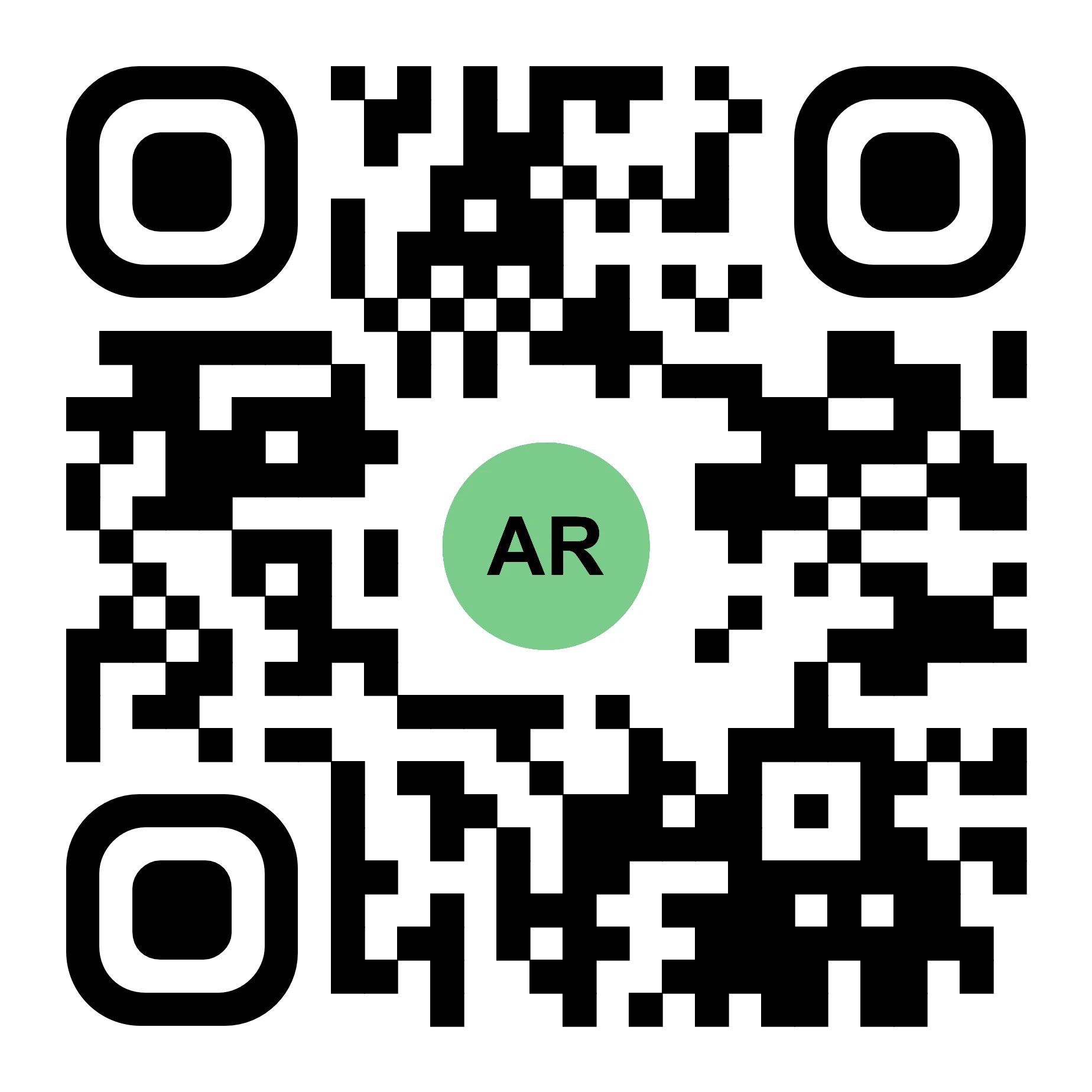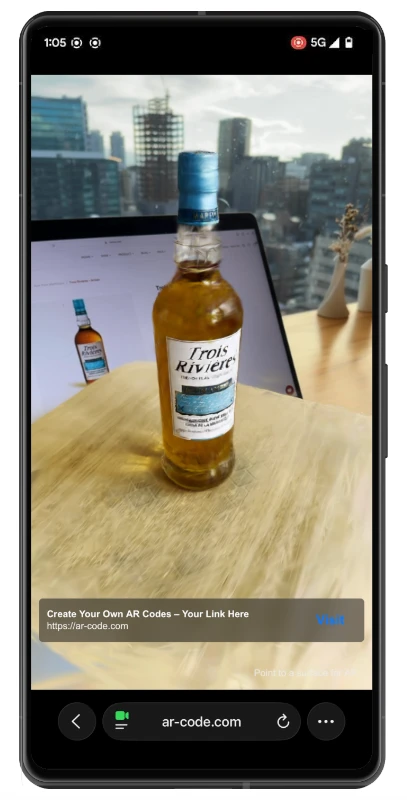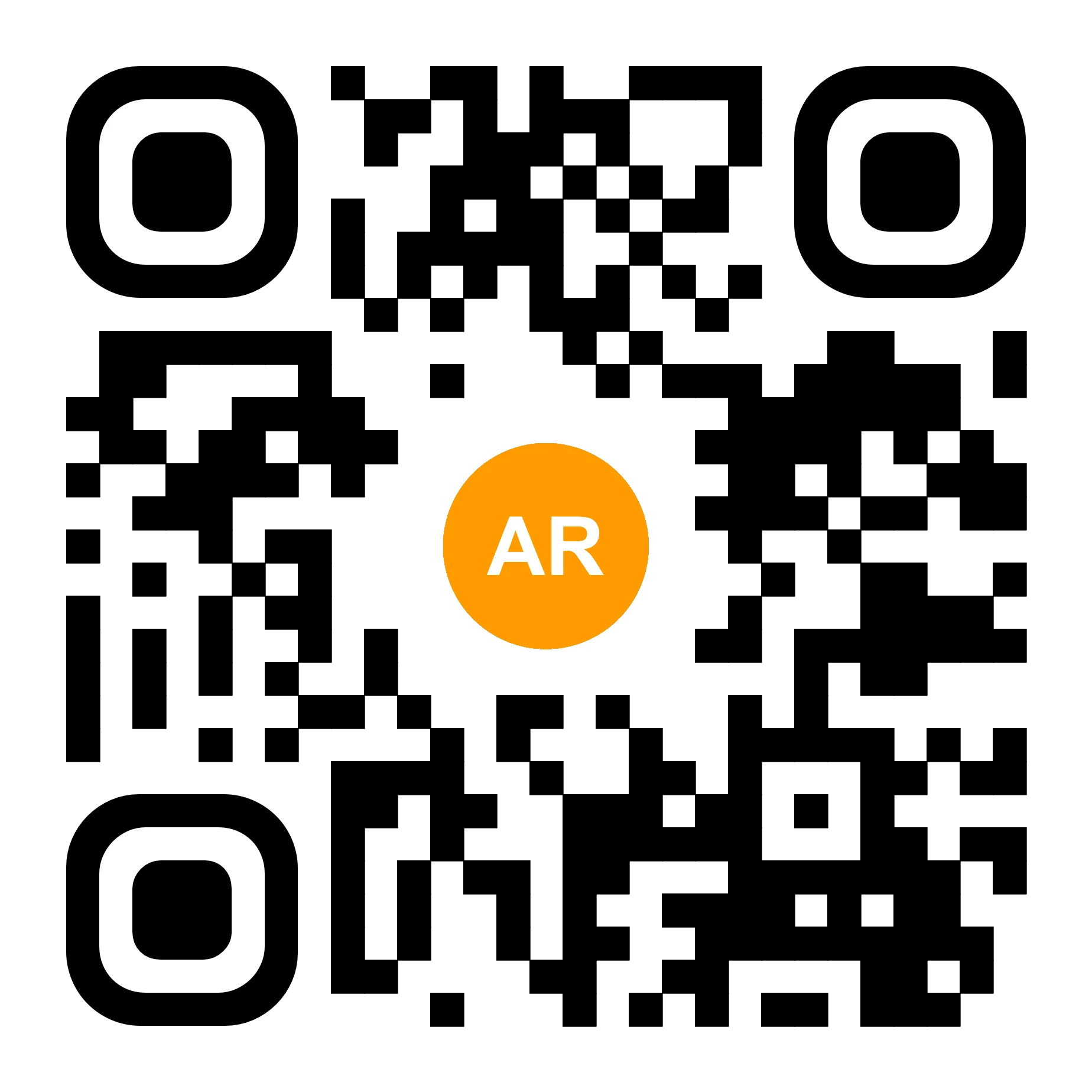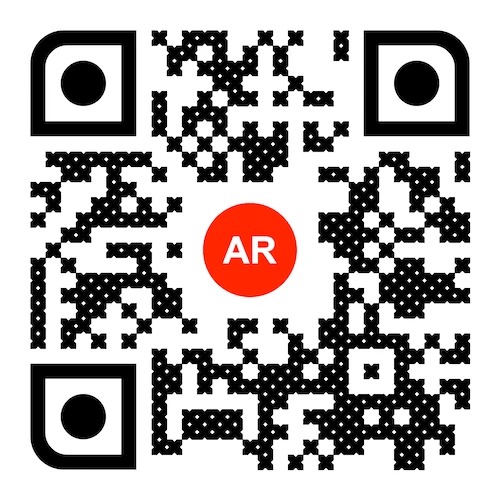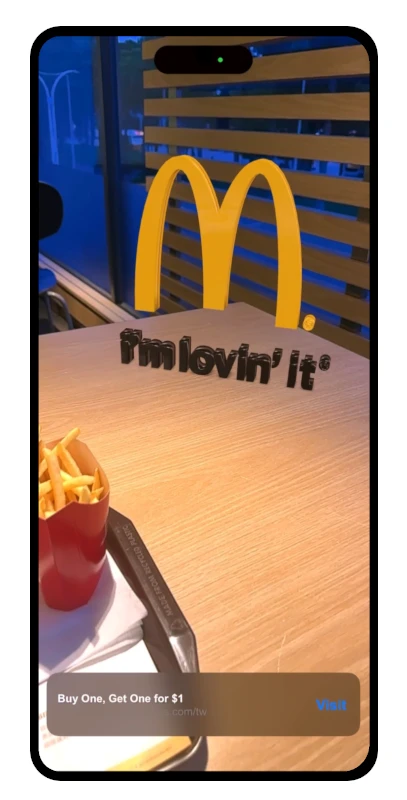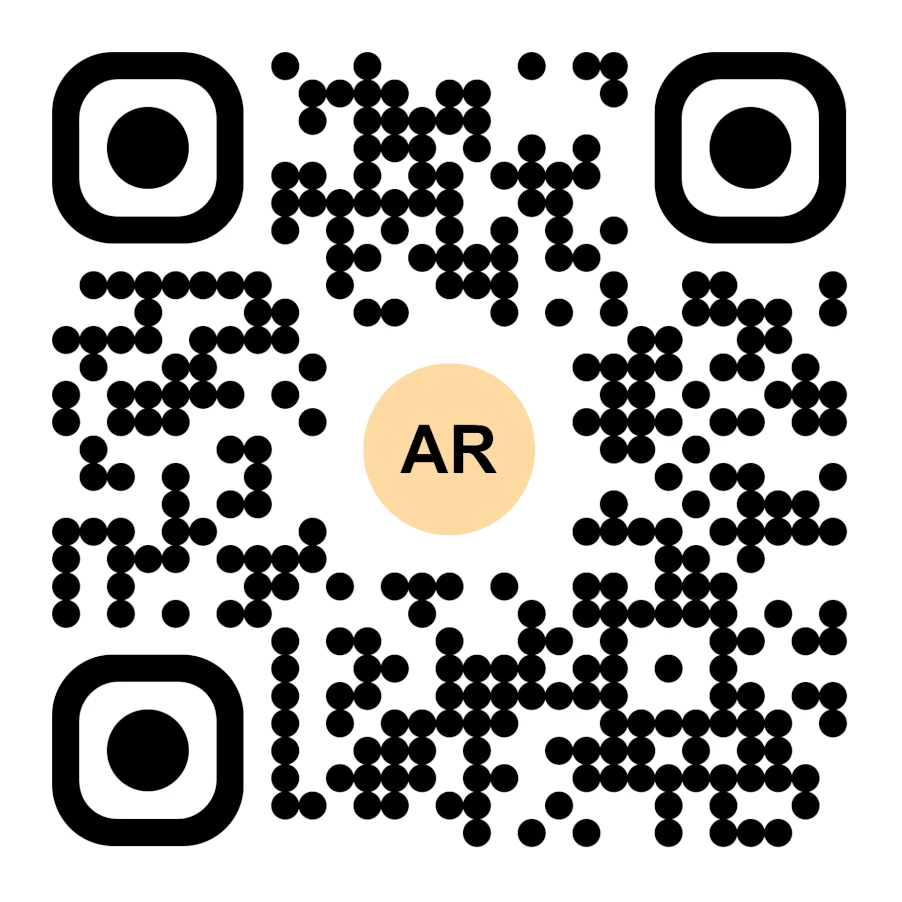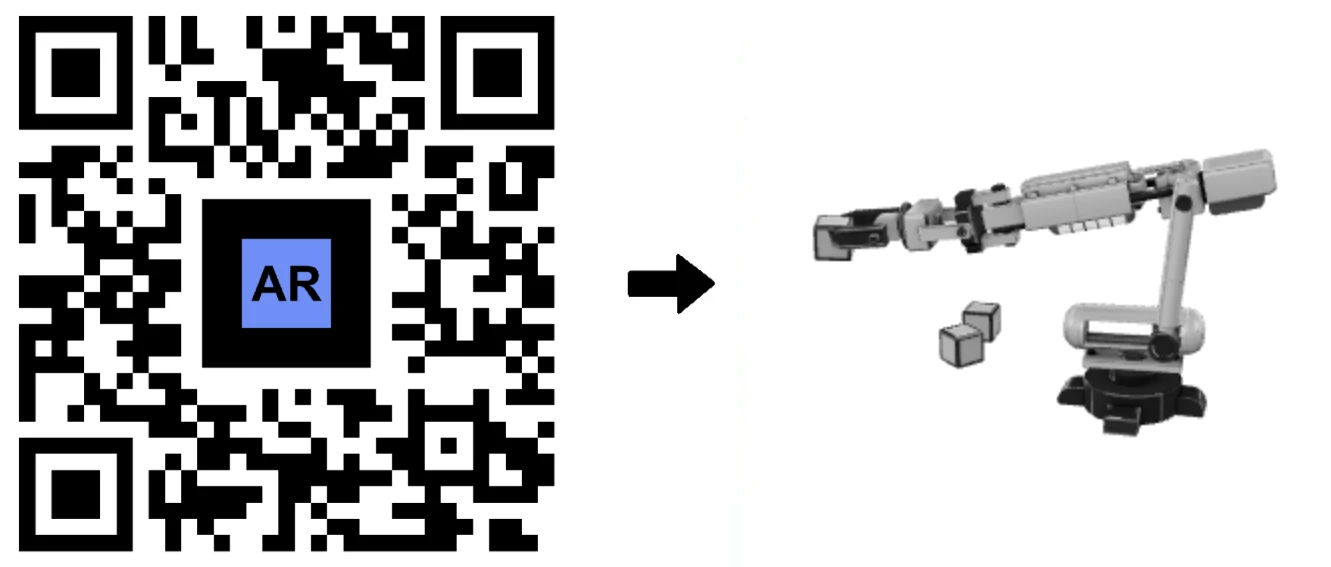Blippar VS AR Code: WebAR SaaS Platforms Compared
WebAR | 03/03/2026 |
WebAR platforms such as AR Code and Blippar are transforming business engagement by delivering interactive augmented reality experiences directly in the browser, with no app downloads required. Brands can rapidly enhance marketing, packaging, retail, and event experiences by integrating AR at any customer touchpoint to increase digital engagement and conversion.
AR Code and Blippar stand out as leading WebAR SaaS solutions, allowing businesses to capture attention through immersive augmented reality content. This guide compares each platform so businesses can choose the ideal AR SaaS for marketing innovation, digital transformation, and improving the customer experience.

AR Code: Effortless WebAR to Power Business Growth
AR Code offers a simple, no-code WebAR SaaS platform enabling quick and effective AR campaign creation and management. Marketing teams can design and publish interactive AR experiences, strengthening brand storytelling and customer engagement without the need for coding skills.
Users can launch AR instantly by scanning an AR QR code with any smartphone or tablet. Visit how to scan AR Codes to discover how augmented reality adds digital layers to print, packaging, advertising, and events. Quick campaign launches boost marketing performance and customer interaction for every industry.
Blippar: Robust WebAR SDK for Development Teams
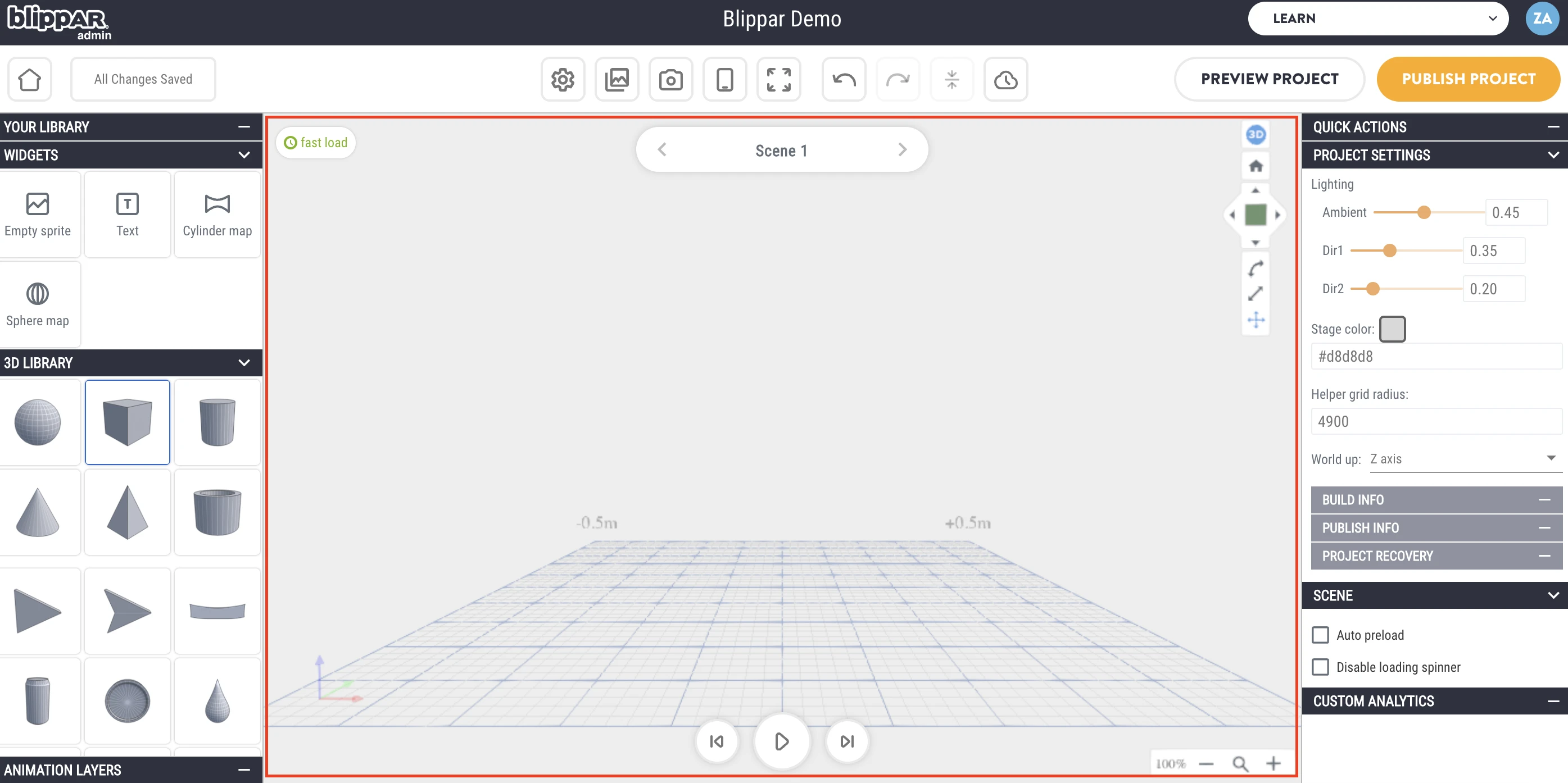
Blippar provides a powerful WebAR SDK designed for businesses with dedicated development teams. Developers use drag-and-drop tools along with support for PlayCanvas, A-Frame, and Babylon.js to create custom AR experiences across web and social channels.
Simplicity vs. Advanced Customization: Which WebAR Platform Matches Your Needs?
Selecting the right WebAR platform comes down to your business priorities: fast, no-code AR deployment or deep customization for fully tailored AR experiences.
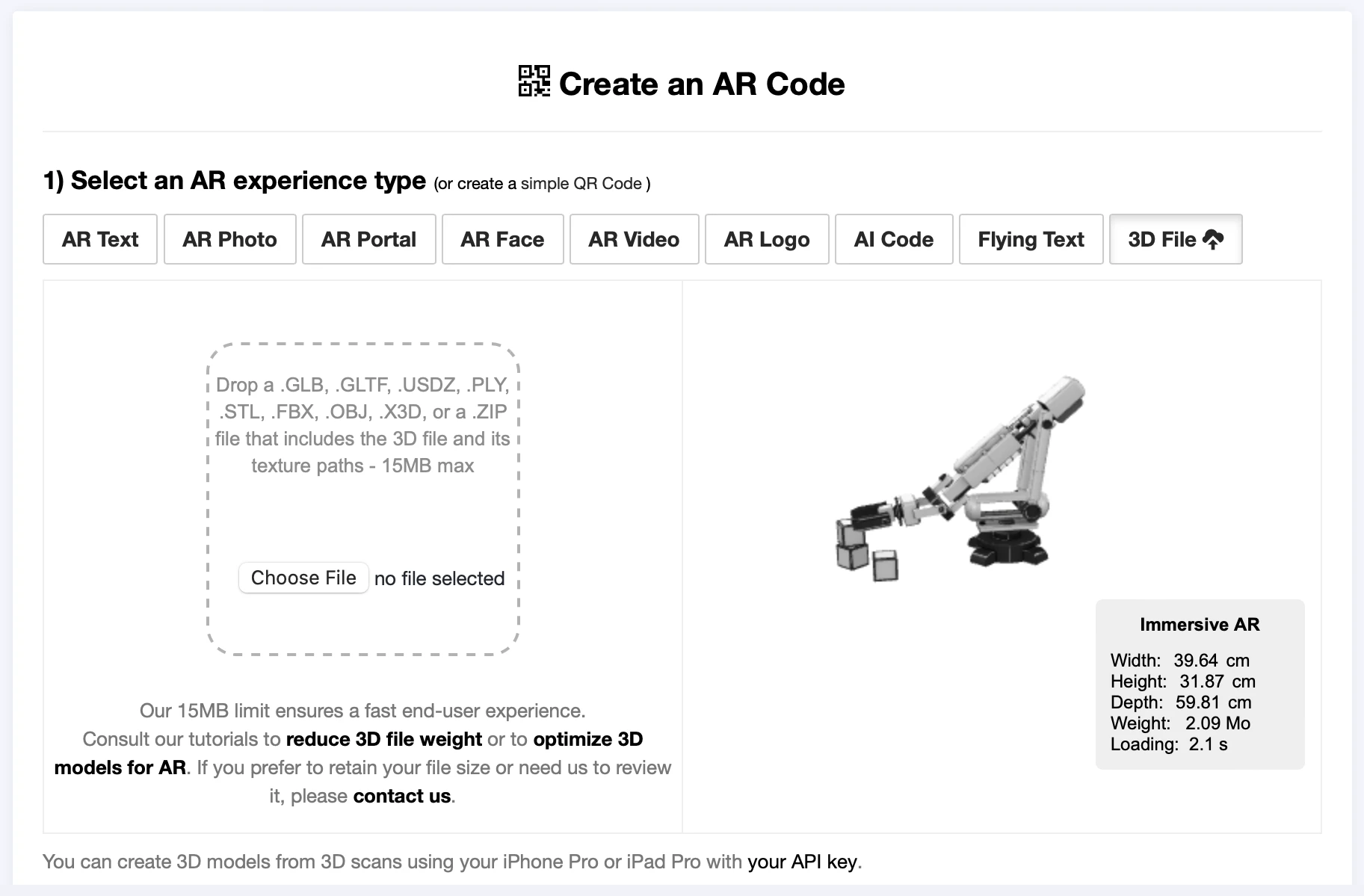
AR Code is ideal for business and marketing teams seeking quick, flexible, and creative AR campaigns. Easy-to-use tools allow you to generate 3D text, AR photos, AR portals, AR face filters, 3D logos, and AR videos. Use AR Code for interactive packaging, engaging virtual tours, AR business cards, immersive real estate marketing, and creative AR packaging campaigns.
AR Code supports seamless 3D model uploads for rich AR content. With AR GenAI, businesses can generate a 3D AR experience from a single photo, enabling rapid, immersive product visualization for customers.
AR Code delivers a complete set of business tools, including detailed documentation, free 3D model downloads, step-by-step AR guides, and dynamic community support. With flexible pricing for all business sizes, you can launch AR campaigns rapidly and measure real impact.
Blippar’s SDK provides developer-level features such as image recognition, object tracking, and advanced 3D rendering. It is suitable for organizations seeking extensive customization and full control, though it requires more technical resources and development time.
Why Businesses Choose AR Code: Fast, Effective WebAR for Results
AR Code stands out for delivering a robust, user-friendly, and scalable AR platform that accelerates marketing, deepens customer engagement, and strengthens brand loyalty. Discover how AR Code can transform your interactive advertising and enhance learning environments with instant AR available on any device.
Compare: Leading WebAR Platforms at a Glance
Compare top WebAR SaaS platforms side by side:
Frequently Asked Questions
How does AR Code facilitate ease of use for non-technical businesses?
AR Code includes intuitive modules like AR Text, AI Code, AR Photo, AR Portal, AR Data API, AR Face Filter, AR Video, and AR Logo, plus simple 3D model uploads. Extensive documentation, free 3D downloads, detailed guides, and an active community let businesses launch captivating AR campaigns without technical expertise.
What unique features does Blippar's SDK provide?
Blippar's WebAR SDK supports advanced features for developers, including image recognition, object tracking, sophisticated 3D rendering, and integration with PlayCanvas, A-Frame, and Babylon.js. This platform is best for companies with skilled development teams seeking high-level customization.
Which platform is more beginner-friendly given the learning curve?
AR Code is built for marketers, business professionals, and educators with no technical background, offering easy drag-and-drop tools, step-by-step tutorials, and quick AR publishing. Blippar is more suited to technical teams focused on full AR customization through development.
WebAR - Latest Blog Posts
8th Wall Is Shutting Down: Timeline, Impact, and the Best 8th Wall Alternative for WebAR

The WebAR industry is rapidly evolving as the 8th Wall shutdown approaches, directly affecting businesses, digital agencies, and developers who rely on browser-based augmented reality to drive engagement. With 8th Wall operations ending after seven years, companies must migrate their AR campaigns and select a...
3DQR vs AR Code: A Comparative Study of QR Code-Based Augmented Reality Solutions
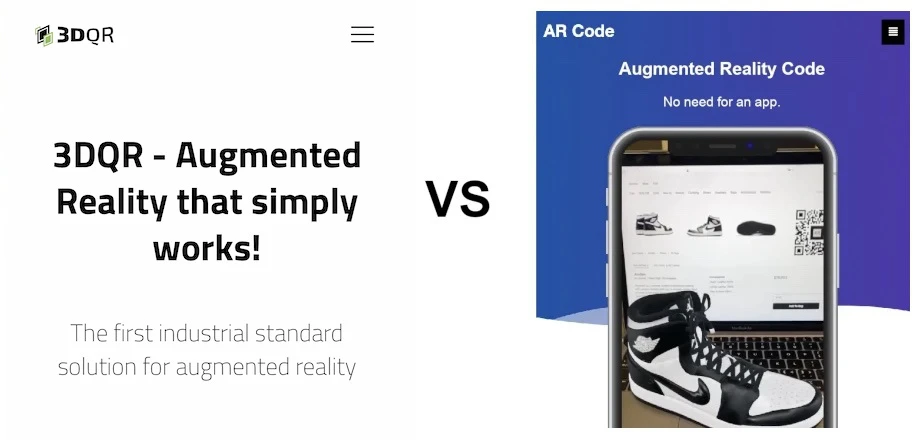
Augmented Reality is revolutionizing business operations and customer engagement across industries. AR Code and 3DQR are top AR SaaS solutions designed to create immersive digital experiences, strengthen client connections, and maximize return on investment. This comparison highlights their features, business...
8thWall VS AR Code: Comparing WebAR SaaS for Your Business
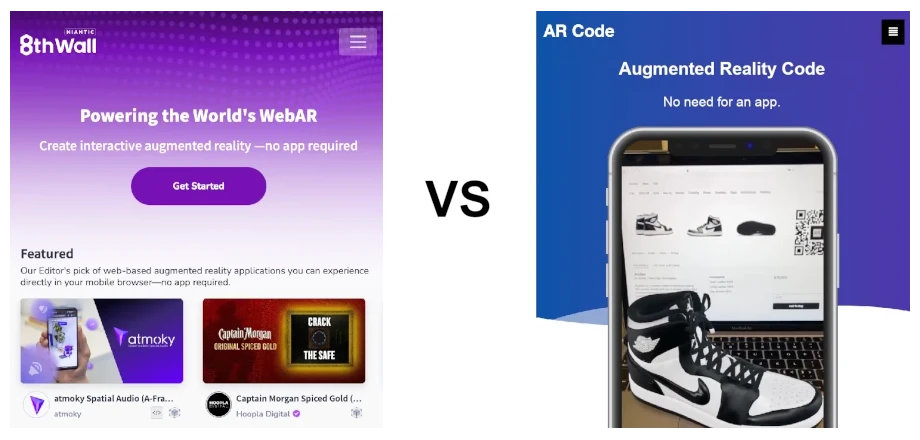
Web-based augmented reality (AR) is transforming how businesses engage customers and demonstrate products. Top WebAR platforms such as AR Code and 8thWall let companies launch interactive AR experiences instantly in any browser, no app required. This accessibility boosts AR marketing and customer connection across...
168,974 AR experiences
590,548 Scans per day
134,143 Creators



